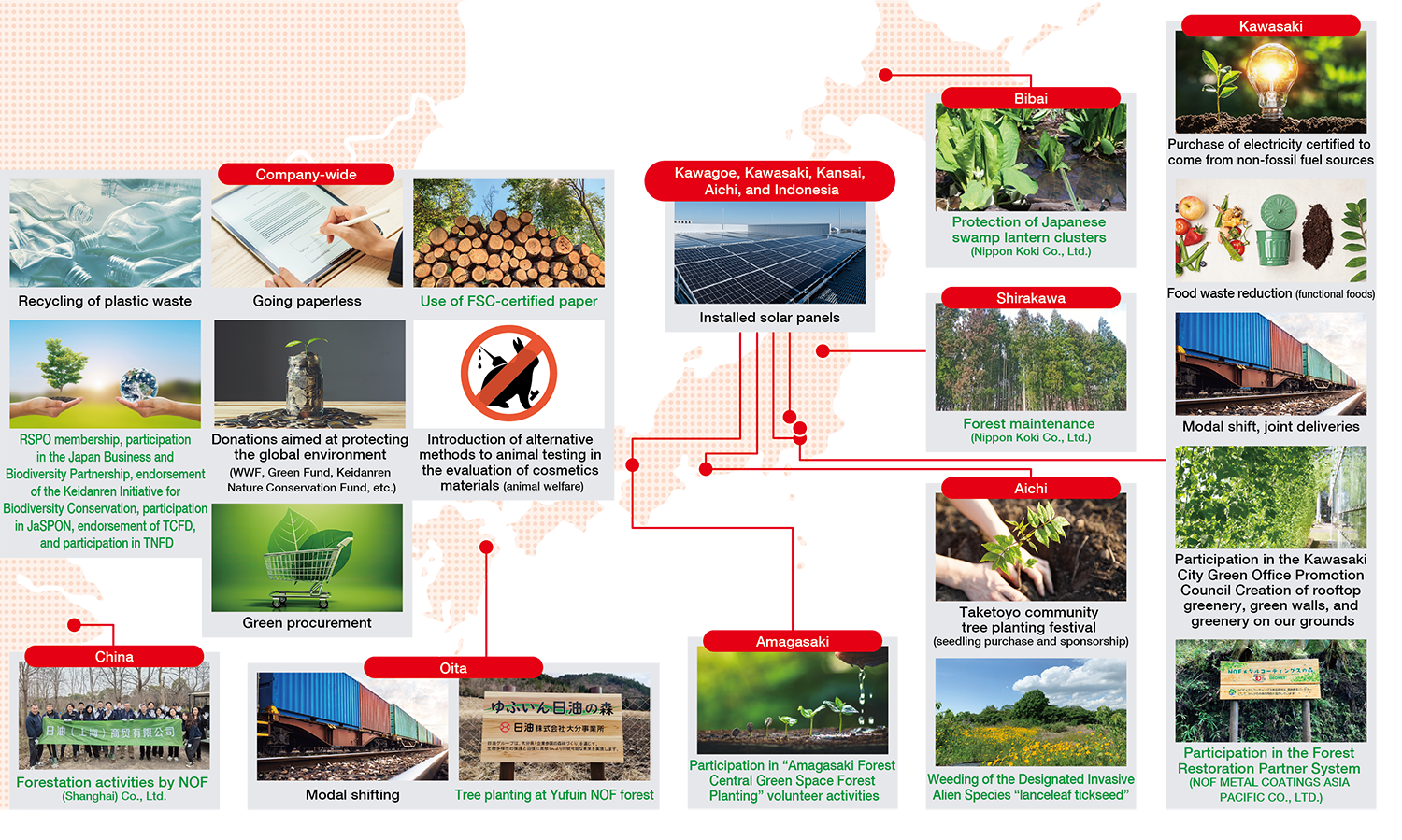Environment
Biodiversity Conservation
Policy
Policy on natural capital
NOF’s initiatives to protect natural capital
The NOF Group places great importance on actively protecting and restoring natural capital. To this end, we have formulated the following policies.
- In order to minimize the impact of our business activities on natural capital, we conduct environmental impact assessments, identify risks, and implement countermeasures.
- We require our employees to comply with international guidelines, laws, and regulations related to natural capital and to work for environmental conservation.
- We assess supply chain risks that may cause natural capital loss and promote sustainable procurement through cooperation with our suppliers.
- We provide educational programs to raise environmental awareness and educate employees and relevant people on the importance of natural capital preservation.
- We cooperate with local communities in participating in local ecosystem protection activities and various projects for restoring natural capital.
Through these initiatives, we will contribute to safeguarding natural capital and help realize a more sustainable future.
Biodiversity Conservation
Progress and Results for Biodiversity Conservation
In addition to “forest planting” through creation of green areas alongside roads as well as thinning and pruning company-owned forests, we are implementing plans that contribute to biodiversity at our sites across Japan through protection activities mainly for endangered species, extermination of invasive non-native plants, and donation activities.
Oita Plant:
Tree planting at Yufuin NOF forest
At our Oita Works, as part of our biodiversity conservation initiatives, we endorsed Oita Prefecture’s “Forest Creation with Corporate Participation” program and carried out tree-planting activities in the forests of Yufu City. This initiative involves concluding agreements with landowners and forest cooperatives through mediation by Oita Prefecture, conducting tree planting and thinning, and thereby conserving forest environments and watershed areas.
The site of our activities is a cedar cutting area at the foot of Mt. Yufu, also known as the “Mt. Fuji of Bungo.” Covering about 2.8 hectares, it has been named “Yufuin NOF Forest,” with plans to plant 2,000 broadleaf trees such as sawtooth oaks. On March 15, 2025, under the guidance of forest cooperative members, NOF employees and their families held a tree-planting ceremony in which they planted 200 saplings, equivalent to one-tenth of the total plan. Guests from other companies in the local industrial complex also attended the event, generating a ripple effect right from the start.
Yufuin NOF Forest is expected to absorb about 160 tons of CO₂ over five years as the saplings grow. It is also expected to function as a watershed conservation area for the Oita River, which is the main water source for Oita citizens. We will help realize a sustainable future through contributions to the forestry cycle of cutting, using, and planting trees.
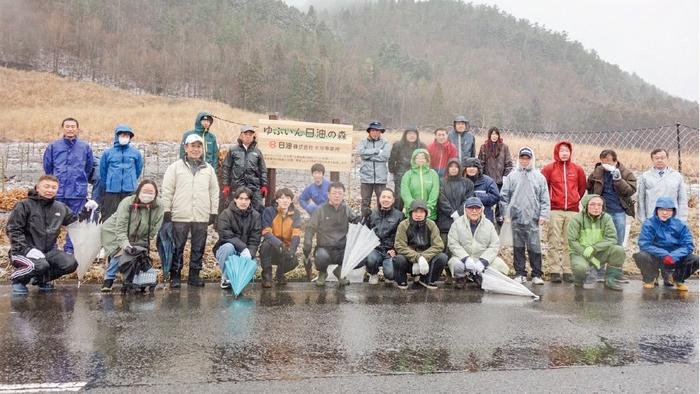
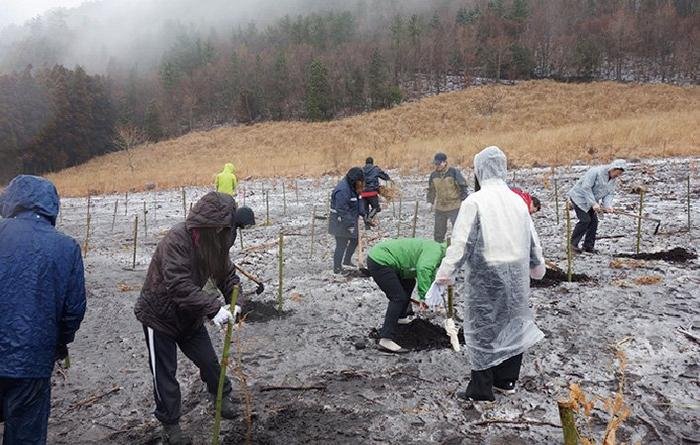
Amagasaki Plant
Participation in “Amagasaki Forest Central Green Space Forest Planting” volunteer activities (from 2017)
In fiscal 2024, a total of 10 employees from the Amagasaki Plant participated in the “Amagasaki Forest Central Green Space Forest Planting,” one of the initiatives of the “Amagasaki 21st Century Forest Project” promoted by Hyogo Prefecture. Together with general volunteers and the secretariat, the employees worked hard on tree planting and weeding. Through this reforestation activity, we will contribute to improving the environment of the waterfront area and ensuring the diversity of biological ecosystems.
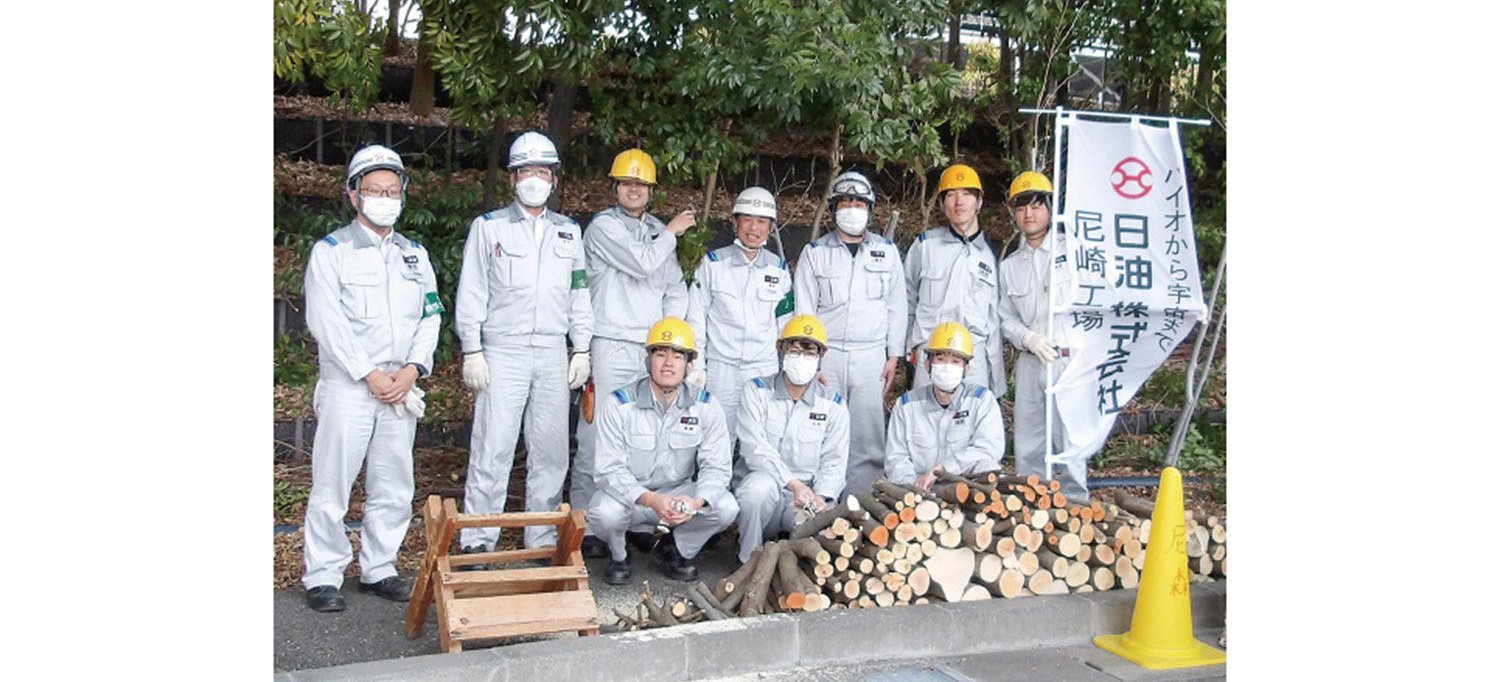
NOF METAL COATINGS ASIA PACIFIC CO., LTD.
Participation in the Forest Restoration Partner System under the Kanagawa Forest Restoration 50-Year Project
The Kanagawa Forest Restoration 50-Year Project is an initiative to revitalize forests measuring about 95,000 hectares, or about 40% of the prefecture's land, from the prefecture’s Mount Oyama and Hakone mountains to forest land in satoyama areas and urban areas. The objective is to prevent the devastation and erosion caused by lack of care and to pass on the rich blessings of the forests to the next generation. NOF METAL COATINGS started to support forest maintenance on an area of about 12 hectares (equivalent to about two Tokyo Domes) in 2022. The forest areas will absorb about 247 tons of CO₂ over five years. Moreover, the decision has been made to name a portion of the forest designated by the prefecture as “NOF METAL COATINGS Forest.” Going forward, as a partner company, we will conduct events for forest maintenance, nature observation, and more. The forest will be used as a place to promote health and deepen friendship with employees and their families, thereby contributing to the protection of natural capital and environmental preservation.
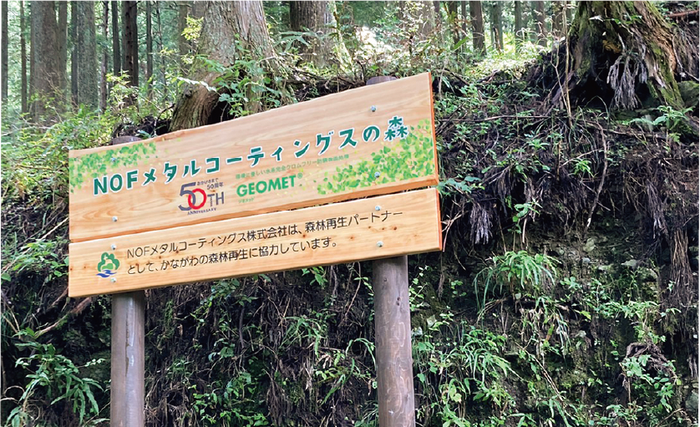
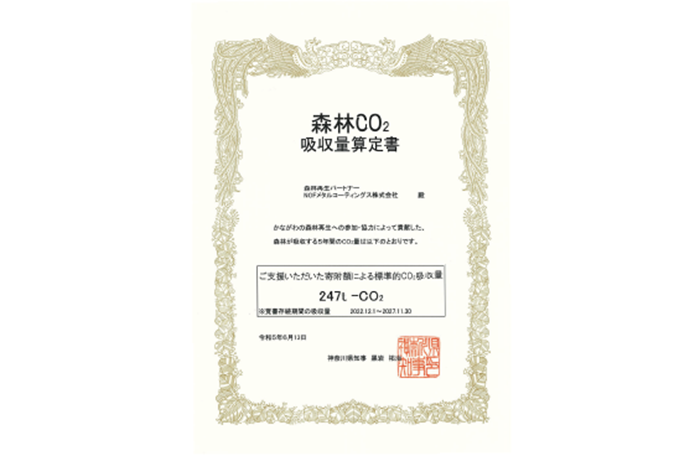
Nippon Koki Co., Ltd.:
Forest maintenance
Fukushima Prefecture, where Nippon Koki Co., Ltd.’s Shirakawa Plant is located, has established the Fukushima Prefecture Carbon Dioxide Absorption by Forest Maintenance Activities Certification System to certify the effectiveness of forest maintenance activities such as planting, weeding, and thinning conducted by companies and organizations in the prefecture in terms of carbon dioxide absorption as a numerical value. This certification is aimed at promoting participation in forest maintenance activities by companies and organizations, thereby contributing to the continued exhibition of the multifaceted functions of forests, such as the prevention of global warming, and the revitalization of communities in mountain villages.
Nippon Koki Co., Ltd., which owns approximately 149 hectares of forest in Nishigomura, Nishishirakawa-gun, Fukushima Prefecture, has been certified as having absorbed 282 tons of carbon dioxide (2012 to 2013) through its forest maintenance activities.
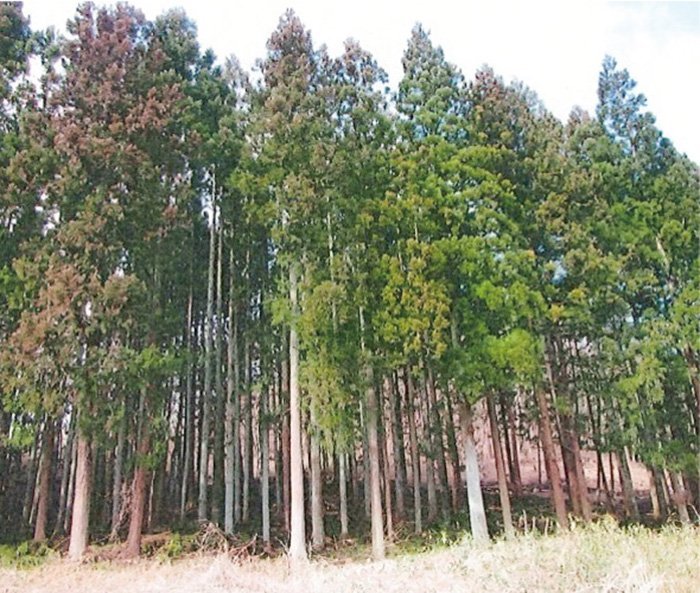
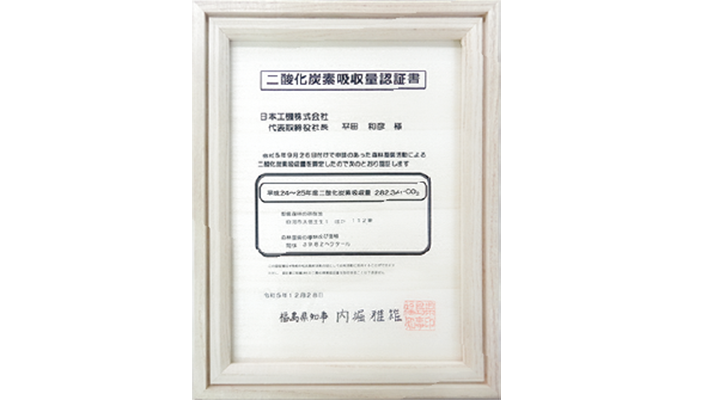
NOF(Shanghai)Co., Ltd.:
Forestation activities
NOF (Shanghai) Co., Ltd. is actively engaged in tree-planting activities with the aim of improving the environment in the Shanghai area and mitigating global warming. In fiscal 2024, 16 employees planted about 20 Japanese ash trees in the Fengxian District of Shanghai. Through these tree-planting activities, we will continue to contribute to the improvement of the global environment.
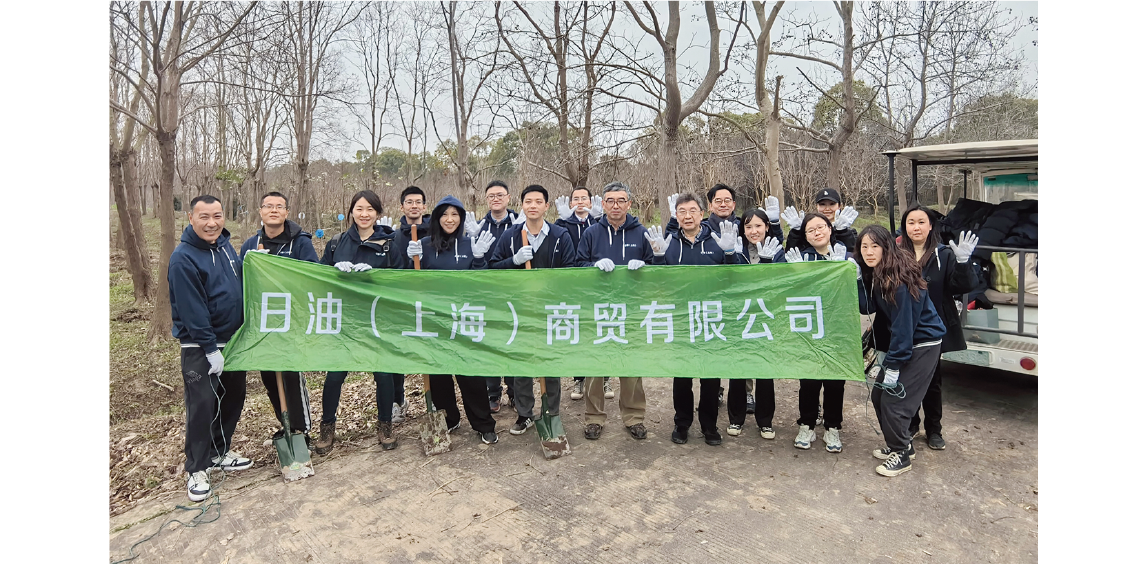
Nippon Koki Co., Ltd.:
Activities to protect Japanese swamp lantern clusters
The Japanese swamp lantern, which is known in Japan from the children’s song “A Memory from Summer,” is an alpine plant that grows near water. On the grounds of Nippon Koki’s Bibai Plant (Bibai City, Hokkaido Prefecture), which covers a vast area of about 43 hectares, or 9.2 times the size of the Tokyo Dome, there are clusters of Japanese swamp lanterns in a wetland where sunlight filters through the trees. Surrounded by Japanese white birch and other trees and water, this rich ecosystem is carefully protected with the continuous observation of employees.
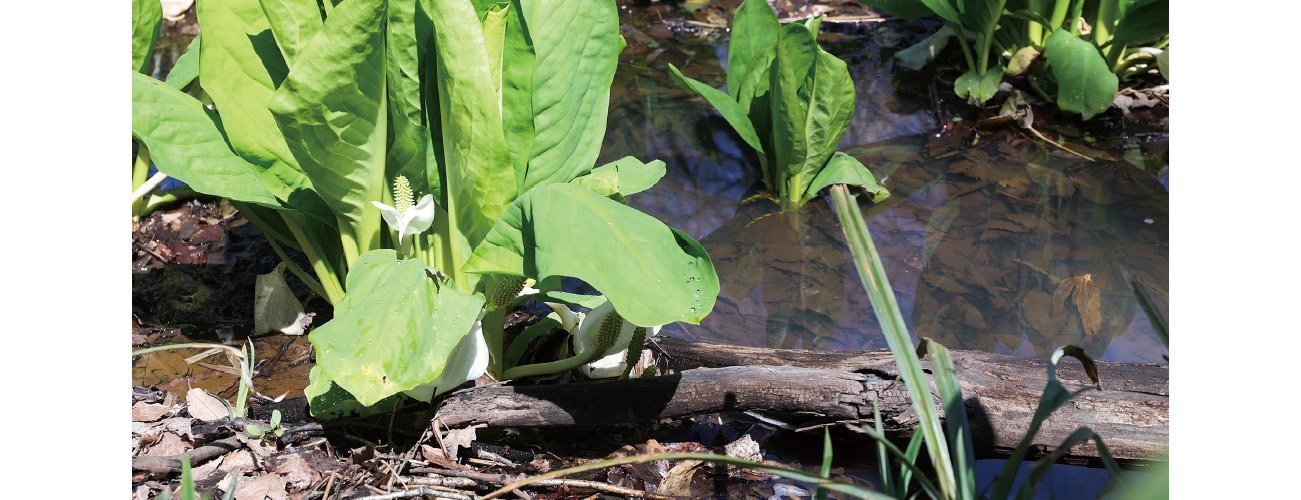
Aichi Works:
Weeding of specified invasive non-native plants
The perennial plant “lanceleaf tickseed,” a member of the Asteraceae family native to North America, was introduced from overseas as an ornamental and greening plant. However, in 2006 it was designated as a “Designated Invasive Alien Species” under the Act on the Prevention of Adverse Ecological Impacts Caused by Designated Invasive Alien Species because of its strong reproductive capacity and potential to seriously impact the ecosystem in Japan. Cultivation, transport, sale, and release into the wild are prohibited. Local governments throughout Japan are calling for extermination of lanceleaf tickseed through their websites and other means. At NOF’s Aichi Works, lanceleaf tickseed grows in various parts of the grounds, and has increased dramatically in recent years. Therefore, the entire plant is conducting extermination activities.
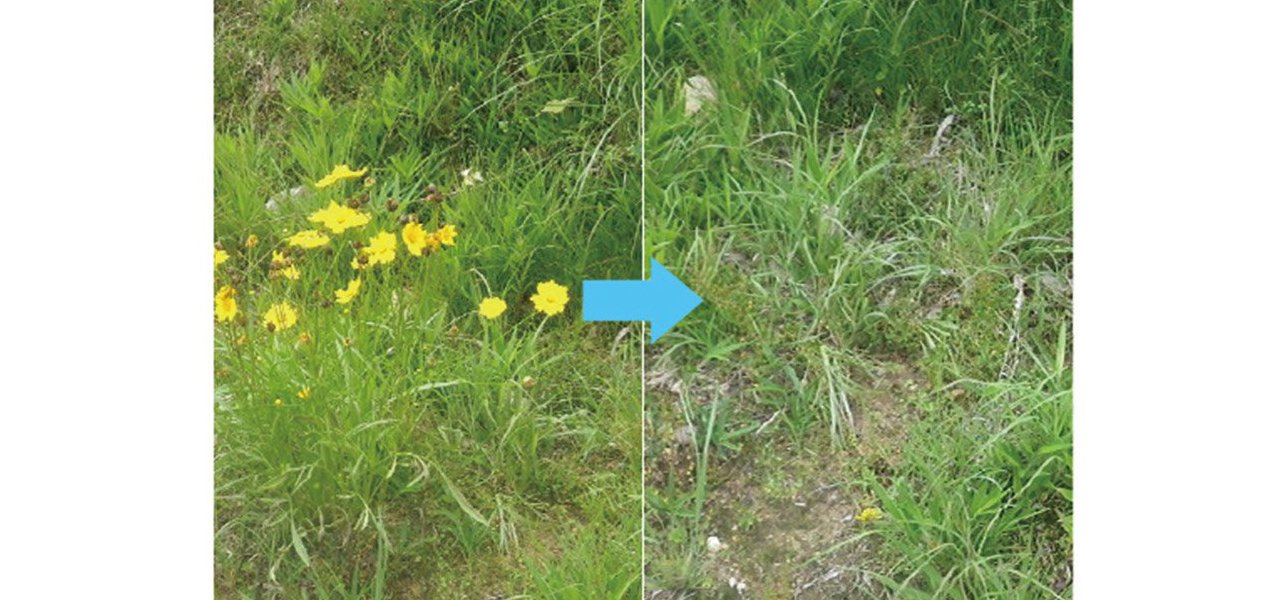
Head Office:
Use of FSC-certified paper
FSC certification is an international system that certifies “responsible forest management” for the purpose of sustainable forest utilization and conservation. NOF uses FSC-certified paper for its Integrated Report, notice of General Meeting of Shareholders, company profile, and in-house newsletters, and cooperates in activities to protect forests.
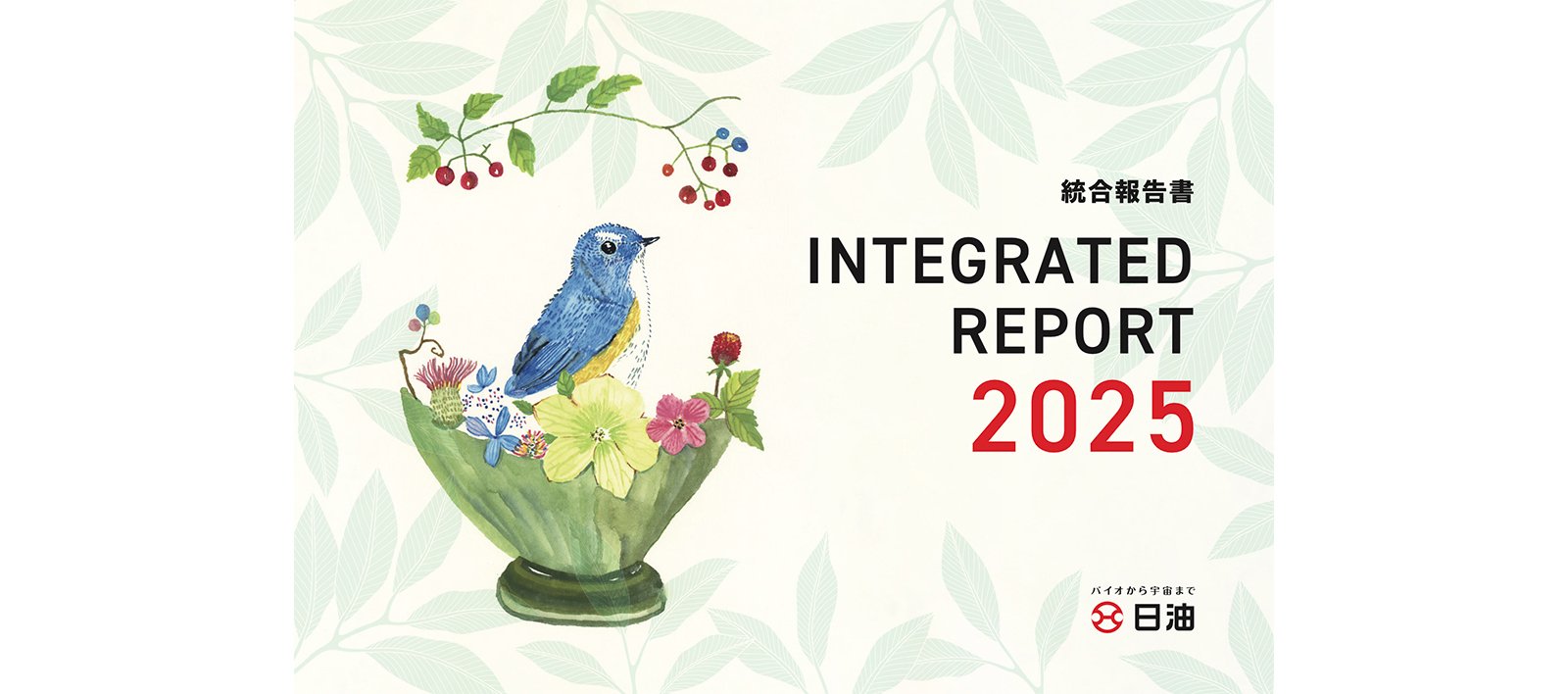
Head Office:
CSR-based Procurement
Since fiscal 2010, we have designated promotion of biodiversity initiatives as one of our Responsible Care (RC) activities. From October 2012, NOF joined the Round-table on Sustainable Palm Oil (RSPO*) under the “Palm Oil Processors and Traders” category to contribute to the healthy development of the palm oil industry. Since 2014, the NOF Group has participated in the Japan Business and Biodiversity Partnership, which promotes initiatives for biodiversity by business operators. NOF currently endorses the Declaration of Biodiversity and Action Policy by Keidanren (2018 revised edition). Furthermore, in April 2019, NOF became a founding member of the Japan Sustainable Palm Oil Network (JaSPON), which comprises 18 companies and organizations including manufacturers, retailers, and non-governmental organizations, and also engages in activities to encourage the entire industry to procure and use RSPO certified palm oil.


